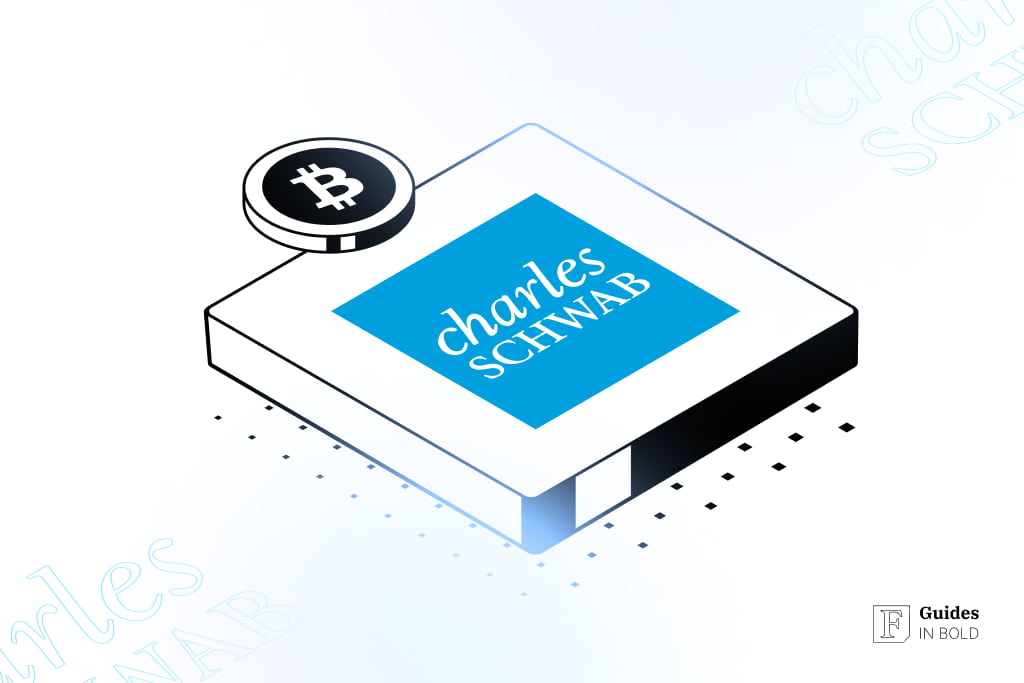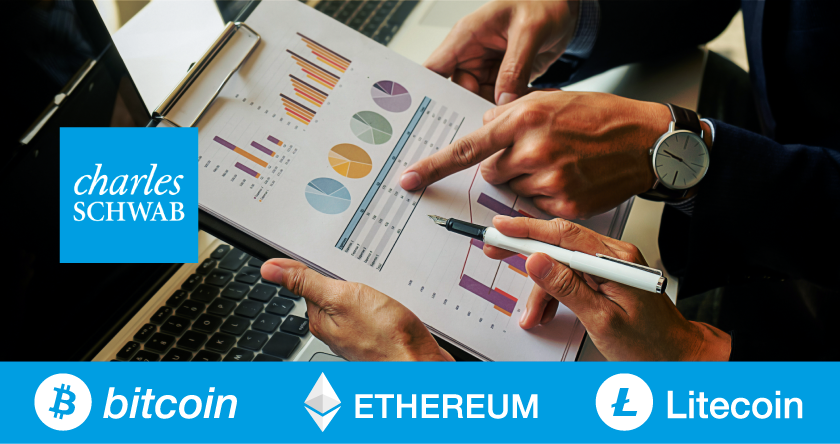Can you trade crypto with Charles Schwab is a question that has piqued the curiosity of many investors eager to access the digital asset market through a trusted traditional brokerage. As cryptocurrency continues to spark interest among both beginners and seasoned investors, Schwab’s stance on offering direct crypto trading is a significant talking point within the financial community. The way Schwab approaches this fast-evolving asset class can have a direct impact on how its clients diversify their portfolios.
While Charles Schwab currently does not provide direct cryptocurrency trading like some dedicated crypto exchanges, it does offer a range of crypto-related investment products for clients seeking exposure to digital assets. These include crypto trusts, ETFs, and mutual funds, which allow investors to gain indirect access to the growth and volatility of the crypto market without holding cryptocurrencies outright. Understanding how to navigate Schwab’s platform, what products are available, and the associated risks and benefits is crucial for anyone interested in expanding their investment strategy into the world of crypto through Schwab.
Overview of Cryptocurrency Trading at Charles Schwab

Charles Schwab is a well-established brokerage firm known for offering a broad range of investment products, including stocks, bonds, ETFs, and mutual funds. With the growing interest in digital assets, many investors are curious about Schwab’s stance on cryptocurrency trading and the types of crypto-related services its clients can access.
At present, Charles Schwab does not allow direct trading or custody of cryptocurrencies like Bitcoin or Ethereum on its brokerage platform. This means Schwab clients cannot purchase, sell, or hold physical crypto assets directly within their Schwab accounts. However, Schwab does provide access to a variety of crypto-related securities, such as exchange-traded funds (ETFs), trusts, and mutual funds that offer indirect exposure to the crypto market.
Schwab’s official position is to monitor the evolution of digital assets and to offer crypto-related investment products that meet regulatory standards. The firm has expressed ongoing interest in the crypto space but prioritizes client protection and regulatory compliance over offering direct crypto trading at this time.
Available Crypto Investment Options via Charles Schwab: Can You Trade Crypto With Charles Schwab
While Schwab does not support direct crypto trading, it enables investors to gain exposure to the digital asset market through publicly traded products. These options include crypto-focused trusts, ETFs, and mutual funds that track crypto assets or companies involved in the digital asset industry.
Investors seeking crypto exposure at Schwab can consider the following investment vehicles, which provide access to the crypto ecosystem without requiring ownership of the actual coins or tokens:
| Name | Type | Underlying Asset | Trading Availability |
|---|---|---|---|
| Grayscale Bitcoin Trust (GBTC) | Trust | Bitcoin | OTC Markets |
| ProShares Bitcoin Strategy ETF (BITO) | ETF | Bitcoin Futures | NYSE Arca |
| Bitwise Crypto Industry Innovators ETF (BITQ) | ETF | Crypto-related equities | NYSE Arca |
| Fidelity Crypto Industry and Digital Payments ETF (FDIG) | ETF | Crypto & fintech companies | NASDAQ |
These securities let Schwab clients participate in the growth of the cryptocurrency sector via familiar investment products. For example, ETFs like BITO invest in Bitcoin futures contracts, while funds like BITQ focus on companies operating in the blockchain and crypto technology sphere.
Procedures to Access Crypto Exposure at Schwab

Schwab’s platform is designed to simplify the process of purchasing crypto-related securities, making it accessible for both new and experienced investors. The process typically involves searching for crypto-focused ETFs, trusts, or mutual funds, then placing trades as you would with any other publicly traded security.
To get started, clients should log in to their Schwab account and use the platform’s search and screening tools to identify specific crypto-linked products by name or ticker symbol. Schwab’s research tools also allow comparison between crypto-related and traditional investments.
When seeking to invest in crypto-related securities at Schwab, investors should consider the following basic steps:
- Open a Schwab brokerage account, if you don’t already have one.
- Fund your account with the desired investment amount.
- Use Schwab’s search bar to find crypto ETFs, trusts, or mutual funds (e.g., enter “BITO” or “GBTC”).
- Review fund details, including holdings, fees, and performance.
- Place a buy order for the selected crypto-related security.
Before investing, Schwab clients should ensure they meet the following requirements:
- An approved and funded brokerage account.
- Understanding of the specific product’s minimum investment, which may vary (typically the price of one share or unit).
- Familiarity with the product’s risks, disclosures, and regulatory status.
Comparison with Dedicated Crypto Exchanges
It’s important for investors to understand how Schwab’s crypto offerings differ from those of dedicated cryptocurrency exchanges, such as Coinbase or Binance. The table below Artikels key distinctions across several dimensions:
| Feature | Charles Schwab | Coinbase | Binance US |
|---|---|---|---|
| Crypto Asset Access | Indirect via ETFs, trusts, funds | Direct trading of 100+ coins | Direct trading of 50+ coins |
| Fees | Standard brokerage commissions (often $0 for U.S. ETFs) | Trading fees (typically 0.5%–4.5%) | Trading fees (typically 0.1%–0.5%) |
| Ownership | No custody of actual crypto | Custody of actual crypto assets | Custody of actual crypto assets |
| Security Protocols | SIPC insurance, regulated brokerage | Private crypto wallets, insurance on held assets | Private crypto wallets, insurance on held assets |
The user experience at Schwab is familiar to traditional investors, with access to extensive research tools, direct customer support, and integration with a full suite of financial products. However, Schwab clients cannot withdraw cryptocurrencies to a personal wallet, nor can they use crypto for peer-to-peer transfers or payments.
In contrast, dedicated crypto exchanges allow users to own, transfer, and manage real digital assets, providing greater flexibility and a wider range of supported coins. However, these exchanges may come with steeper learning curves, different regulatory protections, and varying levels of customer support compared to mainstream brokerages like Schwab.
Risks and Considerations for Schwab Clients

Investing in crypto-related securities through Schwab involves a distinct set of risks. These include volatility in the underlying crypto markets, tracking errors between the funds and actual crypto prices, and regulatory uncertainties that may impact the value or availability of these investment products.
Traditional brokerage accounts, such as those at Schwab, do not provide direct ownership of crypto assets. Instead, investors own shares of funds or trusts, which may behave differently than the digital currencies themselves. Regulatory oversight may also affect how these products are offered or traded.
Schwab publishes specific risk disclosures to keep clients informed about these unique considerations:
“Cryptocurrency-related products are subject to a number of risks, which may include price volatility, lack of liquidity, evolving regulatory frameworks, and potential loss of principal. Investments in cryptocurrency trusts, ETFs, and mutual funds may not directly track the price of the underlying digital asset and can be affected by operational or management issues within the fund.”
Alternatives for Direct Cryptocurrency Trading
For investors seeking more direct crypto market participation, several other platforms specialize in cryptocurrency trading. These platforms allow users to buy, sell, and transfer digital assets, often supporting dozens or even hundreds of different cryptocurrencies.
The following table summarizes popular alternatives for direct crypto trading:
| Platform Name | Crypto Access | Fees | Notable Features |
|---|---|---|---|
| Coinbase | Direct trading, 100+ coins | 0.5%–4.5% per trade | User-friendly, educational resources, FDIC insurance for USD |
| Binance US | Direct trading, 50+ coins | 0.1%–0.5% per trade | Advanced trading tools, low fees |
| Gemini | Direct trading, 60+ coins | 0.25%–1.49% per trade | Security-focused, regulated in the US |
| Kraken | Direct trading, 90+ coins | 0%–0.26% per trade | Staking, futures trading, robust security |
To move funds from a Schwab account to a crypto exchange, investors should follow these general steps:
- Initiate a withdrawal from Schwab to a linked bank account.
- Deposit funds from the bank account into the selected crypto exchange.
- Complete identity verification and security checks on the crypto platform.
- Begin trading cryptocurrencies directly on the exchange.
Future Developments and Industry Trends
Industry trends indicate a growing intersection between traditional finance and digital assets. Charles Schwab’s public statements suggest that the company is actively exploring how to expand crypto offerings in a compliant and secure manner. Industry experts predict further integration of crypto trading and custody solutions in mainstream brokerage platforms.
Brokerages like Schwab are considering several scenarios for future crypto access, including:
- Launching proprietary crypto trading services if regulatory frameworks solidify.
- Partnering with established crypto custodians to provide secure digital asset storage for clients.
- Expanding the range of listed crypto-related funds and ETFs as new products are approved.
A notable example is the approval of spot Bitcoin ETFs in early 2024, which has opened new avenues for investor access through brokerage accounts. If regulatory clarity continues to improve, Schwab and its peers could roll out more direct crypto offerings, making it easier for retail investors to participate in the digital asset marketplace while benefiting from the oversight and security of a traditional financial institution.
Last Word
Charles Schwab may not offer direct crypto trading yet, but it provides several pathways for investors to get involved in the digital asset space through more traditional means. By leveraging crypto-related ETFs, trusts, and mutual funds, clients can participate in the crypto market with the backing and security of a reputable brokerage. As the financial industry evolves and crypto continues to gain mainstream acceptance, keeping an eye on how Schwab adapts its offerings could be valuable for forward-thinking investors. Whether you’re new to crypto or simply prefer the stability of a traditional platform, understanding your options with Schwab will help you make more informed decisions as the landscape continues to shift.
FAQ Resource
Can I buy Bitcoin or Ethereum directly on Charles Schwab?
No, Charles Schwab does not currently allow clients to purchase or hold cryptocurrencies like Bitcoin or Ethereum directly on its platform.
What crypto investment products are available at Schwab?
You can invest in crypto-related ETFs, trusts, and mutual funds that track the performance of various cryptocurrencies or blockchain companies.
Does Schwab plan to offer direct crypto trading in the future?
Schwab has expressed interest in monitoring the crypto space but has not announced definitive plans to offer direct crypto trading for retail clients as of now.
Are there restrictions or requirements for investing in crypto products at Schwab?
Yes, you need to have an eligible brokerage account, and certain products may have minimum investment amounts and risk disclosures you must review before trading.
How can I transfer funds from Schwab to a crypto exchange?
You can initiate a withdrawal from your Schwab account by bank transfer or wire, then deposit those funds into a crypto exchange account to buy cryptocurrencies directly.